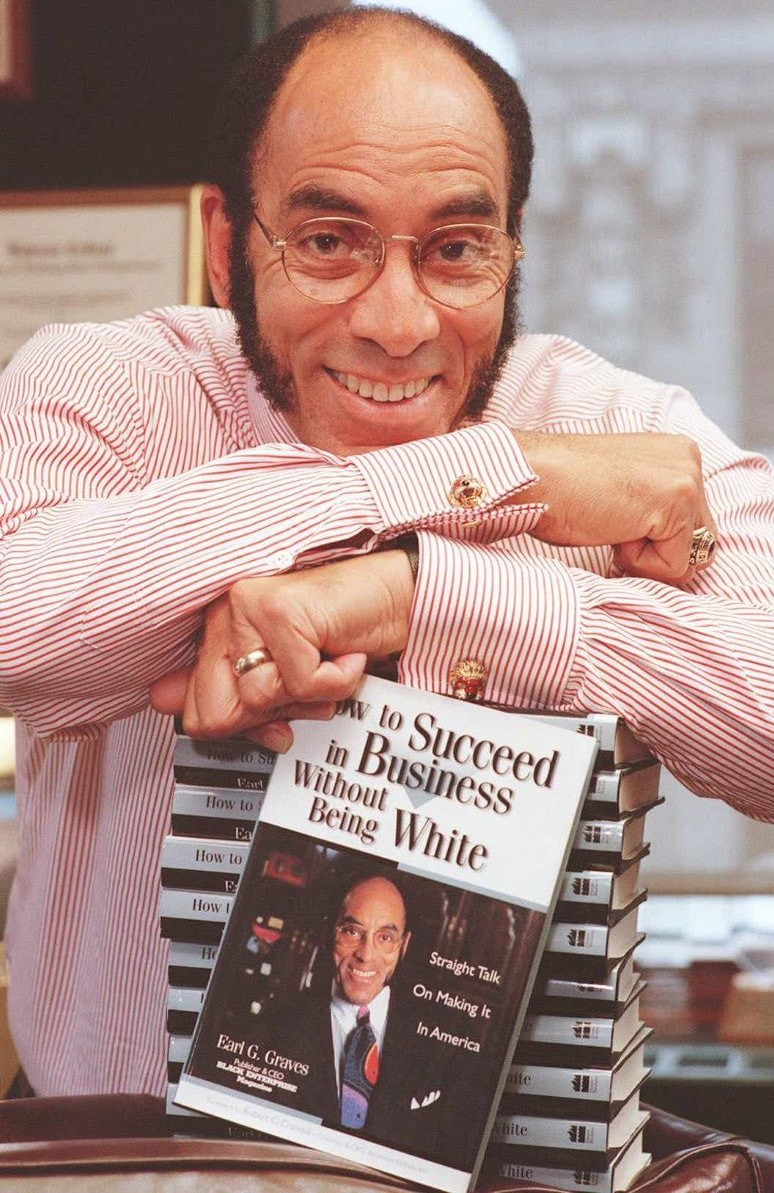Earl Graves: A tribute to one of the 20th century's great African American business leaders27/4/2020 Black Enterprise founder and chairman Earl Graves Sr., who passed away in April, was remembered this week as one of the 20th century’s greatest African American business leaders. He inspired millions to pursue their dreams in the corporate world while promoting social justice throughout the nation.
A longtime Scarsdale resident, Graves was a kindhearted man, practical jokester, and inveterate network creator, always looking to help others make the connections that would help them advance. Graves looked good, too — in his trademark mutton-chop sideburns and perhaps attired in an outfit from Ralph Lauren he purchased on a shopping excursion to Bloomingdale’s with the Rev. Franklyn Richardson, pastor of Grace Baptist Church in Mount Vernon, where he was a parishioner. “Earl Graves was a catalyst for change and progress in the African American community,” said Richardson, one of Graves' closest Scarsdale friends. “He also provided a bridge from the African American community to the larger white corporate community. He challenged the status quo. And he sought to make the powers and institutions accountable for the neglect African Americans received over the previous 400 years.” Graves, who grew up in Brooklyn’s Bedford-Stuyvesant neighborhood, lived for decades with his wife, Barbara, on Heathcote Road, in a brick-faced palatial mansion in one of Scarsdale’s most desirable neighborhoods. Out back was a tennis court, swimming pool and a formal garden. Inside was his prized Steinway player piano, a collection of grandfather clocks, an ice cream parlor, and ample space for entertaining guests at his legendary parties. The former U.S. Army Green Beret founded the magazine in the early 1970s, at a time when African Americans were just beginning to find a firm foothold in corporate America. His publication targeted black professionals, executives and entrepreneurs, as well as policymakers as he advocated for their inclusion in the mainstream of the American corporate arena. He also fought for social justice in a society split by segregation and discrimination. He did it through journalism, with his magazine, and at Black Enterprise networking events at ski resorts, golf and tennis clubs, as well as conferences for entrepreneurs and women seeking advancement. He demonstrated how to succeed through his ownership of the nation’s largest minority-owned Pepsi-Cola bottling franchise in Washington, D.C. And he made his point to corporate America as a pioneering African American on the boards of major corporations, such as DaimlerChrysler, Aetna and AMR Corp., which runs American Airlines. Graves was keenly aware of racism's grip on American society. In 1997, he said it wasn't a question of whether his grandchildren would be called the N-word. It was just a matter of time. Four years later, one of his eight grandchildren, Earl "Gibby" Graves, had his first experience with the racial epithet when his father, Butch, showed him the word scratched on his Cadillac Escalade. By sixth grade, his grandson had to deal with classmates at Seven Bridges Middle School in Chappaqua who called out the slur repeatedly in his presence. Graves inspired generations of African Americans. There were those from his generation, like Richardson, and Ray Robinson, a former AT&T executive. Then there was a younger cohort that belonged to the generation of his three sons — Butch, John, and Michael — who turned to Graves for direction and inspiration as they climbed the corporate or political ladder. State Sen. Majority Leader Andrea Stewart-Cousins recalls the impact Earl Graves had on the African-American community. “He was very accessible and such an important figure because of his willingness to share the secrets of business that many in the African American community were not privy to,” said state Senate Majority Leader Andrea Stewart-Cousins, D-Yonkers. “He broke so many barriers.” Graves was a force in the political community as well. He came of age as an aide to U.S. Sen. Robert F. Kennedy in the mid-1960s. In June 1968, he was at the Ambassador Hotel that fateful night when Kennedy was assassinated. He was an adviser in the 1980s presidential campaigns of civil rights leader Jesse Jackson and a force behind Barack Obama’s historic victory in 2008. He helped out locally, too, recalled Westchester Deputy County Executive Ken Jenkins, the former county legislator, who was a contemporary with Graves’ sons and socialized with them. Jenkins considered himself part of the “extended waves” of the magazine publisher’s vast circles. “His whole life was about empowering others, just pulling them up and showing them the path to prosperity,” said Jenkins. “He made a difference everywhere he went.” Source : lohud.com, 9th April 2020 |
Archives
May 2022
Categories |


 RSS Feed
RSS Feed